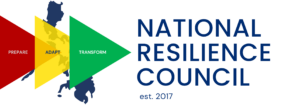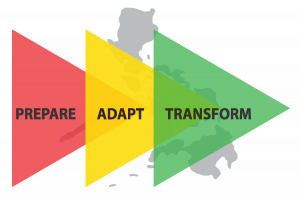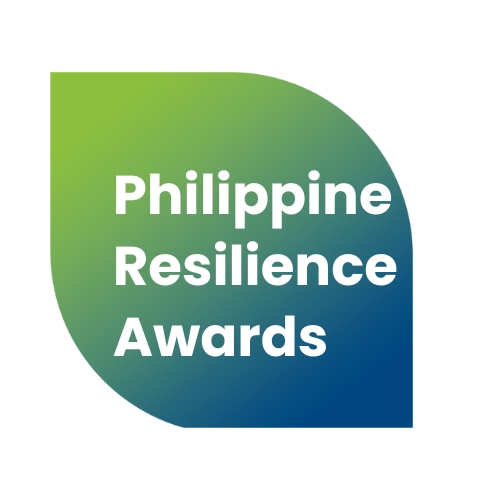The Philippine Resilience Awards (PRA) is a recognition program that aims to seek and honor champions of resilience in various sectors and communities. Resilience is an essential process contributing to the achievement of sustainable development. A meta-analysis on resilience unpacked key indicative resilience capacities: preventive, anticipative, absorptive, adaptive, and transformative. Thus, if we pull together the definitions, climate and disaster resilience will require capacities to anticipate, resist, absorb, accommodate, adapt to, transform, and recover from the effects of natural and human-induced hazards in a timely and efficient manner, including through ensuring the preservation, restoration, or improvement of its essential basic structures and functions through whole-of-society approach to risk management adapted from UN Office for Disaster Risk Reduction (UNDRR) and Intergovernmental Panel on Climate Change Special Report on Managing the Risks of Extreme Events and Disasters to Advance Climate Change Adaptation (IPCC SREX). These capacities will enable us to bounce forward and achieve sustainable development.
The PRA acknowledges breakthrough efforts of resilience champions amidst complex and systemic challenges, as these significantly contribute to disaster risk reduction and climate change adaptation and mitigation in their respective communities.
The PRA recognizes that each leadership story is unique, leaders of varying degrees of influence employ distinct approaches to address context-specific matters. Sense of purpose, persistence, passion, and innovation, are unifying factors among leaders working towards disaster resilience and which the PRA seeks to recognize and honor.
Nominated resilience initiatives will be evaluated through a rigorous process built around five (5) key indicative resilience capacities: preventive, anticipative, absorptive, adaptive, and transformative. Finalists will be further screened based on their demonstrated innovations, leadership and positive impacts resulting in increased community resiliency.
As PRA winners, they are considered models of risk and resilience governance, with demonstrated activities geared towards the adoption of, and investments to sustain and replicate, good practices on climate change and DRR.
Overall, the PRA is a pioneering initiative, conceived by Senator Loren Legarda in 2023, that serves as a vital platform for sharing best practices, fostering collaboration, and inspiring positive change in climate and disaster resilience efforts. As a collaborative platform, it comprises the Office of Senator Loren Legarda, Climate Change Commission, Philippine Commission on Women (PCW), National Resilience Council, Carlos P. Romulo Foundation, Private Sector Alliance for Disaster Resilient Societies (ARISE), SM Prime, and Women’s International Network on DRR Philippines (WINDRR). This recognition program endeavors to promote a more intersectional approach to Disaster Risk Reduction and Climate Change Adaptation, with full participation from the private sector. On its second run, the PRA reaffirms its commitment to making a contribution to building a safer, more sustainable future for the Philippines, driven by the collective resilience, dedication, and innovation of its people.
Objectives
In this context, the objectives of the 2024 Philippine Resilience Awards are as follows:
- Recognition of Models of Risk and Resilience Governance. Search, select, assess, and recognize local leaders who have contributed towards building sustainable and resilient communities based on metrics of leadership and governance, science and technology, and resilience outcomes and impacts.
- Organization of Climate and Disaster Resilience Champions. Establish a pool of “resilience champions” who would act as mentors and coaches for fellow local leaders and resilience advocates.
- Facilitation of Knowledge Exchange. Provide a platform for sharing of good practices, experiences, and lessons learned in risk governance and resilience building; and
- Enhancement of Capacities. Provide opportunities, including financial support, mentorship, and partnership linkages, to strengthen further the capacities of resilience champions in their work towards risk governance.
![]()



